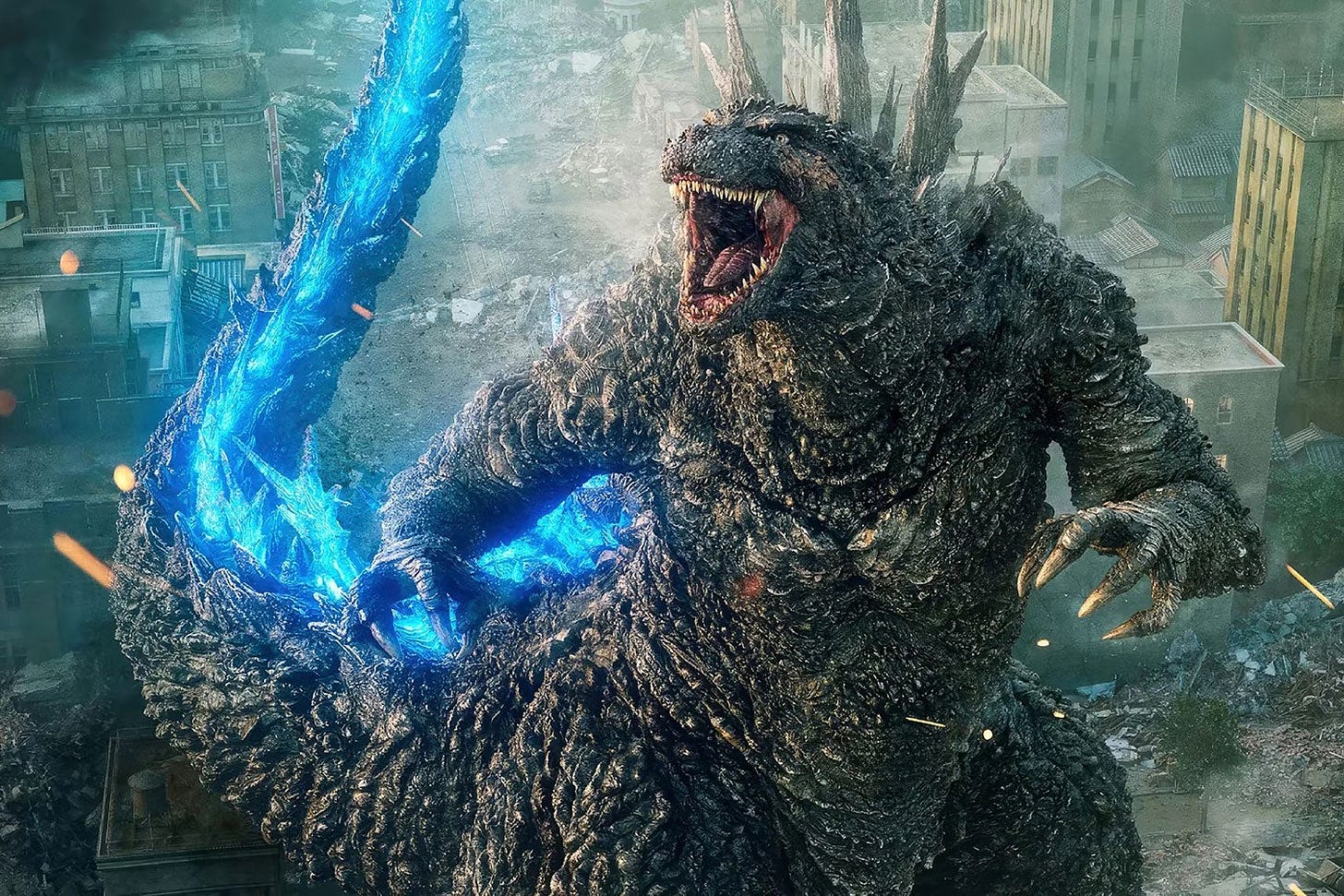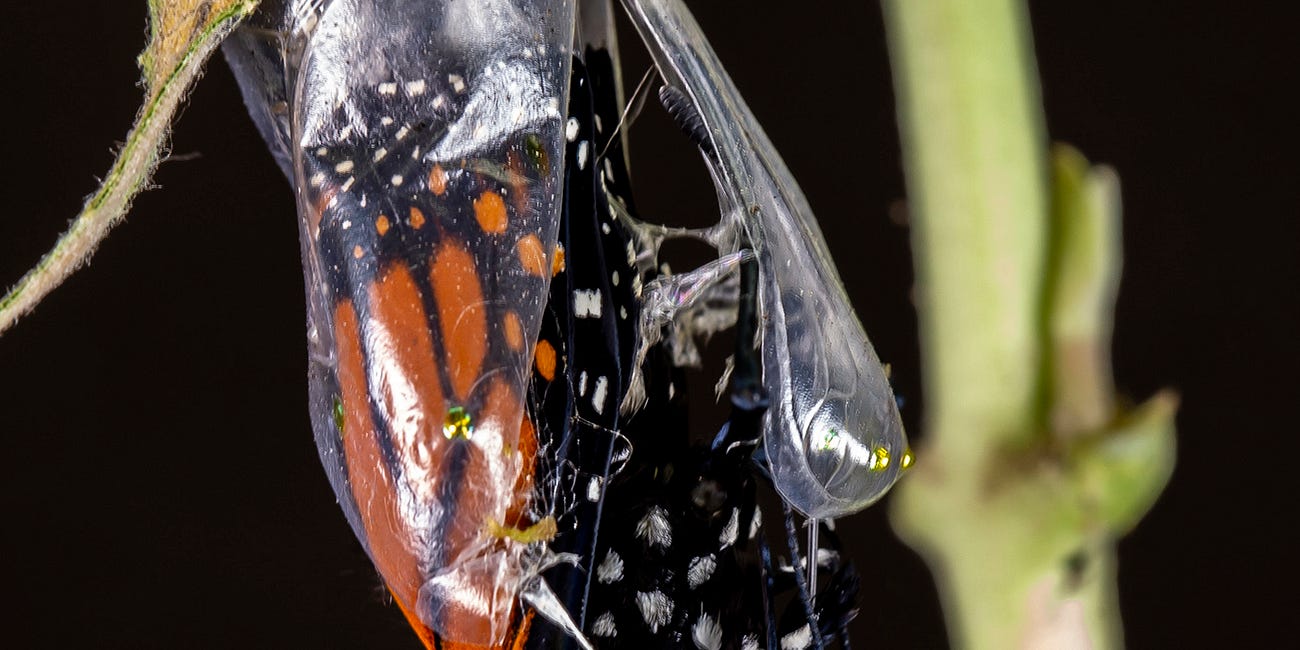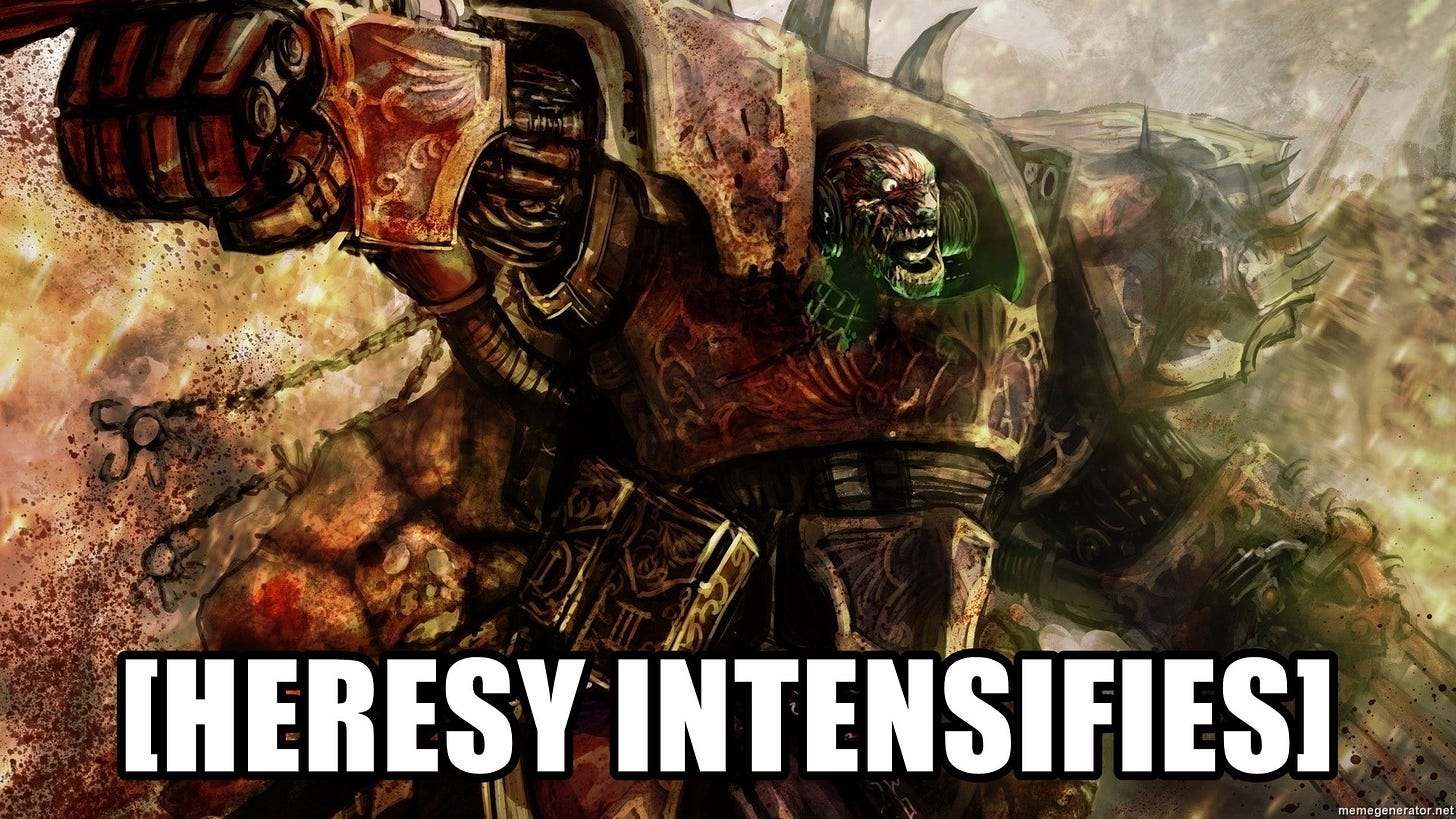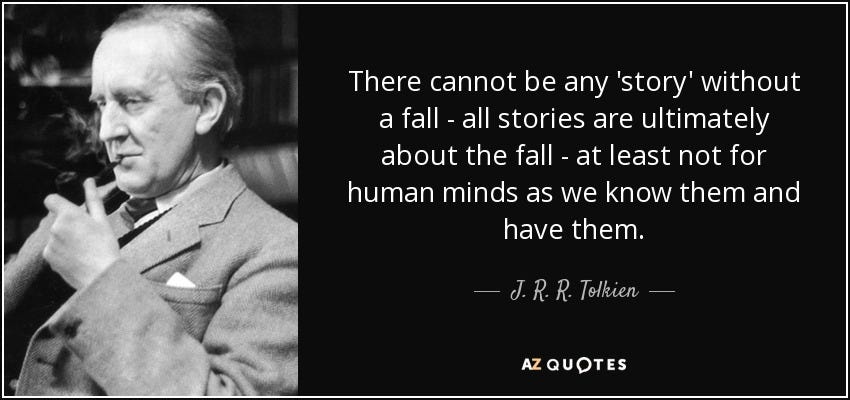
Metamorphology: On the Origin of Evolutionary Theories
Now that you have seen a picture of a pretty butterfly emerging from its chrysalis, which was once upon a time the primary metaphor of evolution over a thousand years before Charles Darwin was even a sperm and egg made by his parents, I am going to warn you that this whole post is basically just a bunch of major heresy relative to what you’re taught abo…
I’ve always found the aspect of neo-Darwinism stating that mutations are random kind of the most problematic of them all. The problems with Darwin’s theory is essentially that the Malthusianism, in addition to seeming sort of repulsive to most people, doesn’t align with most people’s experience of life. Do you really just have a bunch of random things happen and then whichever ones fail get destroyed and that’s it? That itself seems not particularly tenable, not even in the context of biology. Even though there are plenty of non-random factors in biology and even Darwin himself actually believed in the inheritance of acquired characteristics, all life started with mutations at one point and everything else is secondary.
However, any kind of moralizing and even the phenomenological argument would be worthless if it were really true, which is why the primary argument is not along either of those lines even if they both provide a strong intuition for that not to be the case. The real reason mutations shouldn’t be random is that no natural processes are random, mutations are just the result of damage to DNA and there’s no reason anything about that process should be any more random than the result of damage to anything else natural or artificial that you can think of. For example, hail damage to windows always leads to one result, and the breaking of windows is different from the breaking of wood, etc., there’s a difference between hail breaking things and an axe breaking them, and nothing about any of this is random or unpredictable. The only reason the damage and repair of DNA is argued to be random by some people is they don’t understand it and they basically want to introduce black magic in my opinion, and other people go along with it out of convention.
The claim that mutations are completely random, in addition to not making all that much sense in the universe we live in which appears to be deterministic to anyone who’s paying close attention despite the shouting of the fashion-mongers, essentially amounts to saying life itself is purposeless. People might believe that, for example, a coin toss is random and if you flip it 10 times it’ll come up heads 5 and tails 5 but that doesn’t always happen. If you flip a coin 100 times or more it could come up on the same side every time. It could come up on the same side indefinitely. In fact I don’t think I believe in randomized trials for medicine etc. for the same reason, because as unfashionable as this is I really don’t believe in randomness at all, “luck” is just how you respond to things you don’t personally understand or control (which is why fortune favors the bold) and that’s not a trait of objective reality, but that’s another story. There’s just no reason the equivalent of coin-tosses should even be reliable in terms of getting any kinds of results because you can’t even guarantee that it’ll land on a different side once even if in most people’s experience that usually happens and it’s considered an anomaly when it doesn’t.
When you look closely, there’s really not even a reason one mutation had to happen in the first place, yet this is the main driving factor behind all of life, recombination etc. on their own would never have led to an increase of complexity, just a shuffling around of traits. Are we really supposed to believe there’s an infinite number of possible organisms that could’ve been made at every single level of complexity because there are no a priori factors driving certain events to happen, especially mutations, and the only ones that are alive today are just the ones that didn’t die before they could reproduce? That’s literally not how anything else works. The fact is if the universe is deterministic like in the de Broglie-Bohm hidden-variable theory, there’s a good reason to think that mutations aren’t the magical sole exception to determinism, and this is indeed where the evidence points.
Study Challenges Evolutionary Theory That DNA Mutations Are Random | UC Davis
Mutations are not random | Nature Ecology & Evolution
Are genetic mutations random in humans? Israeli study says no - The Jerusalem Post (jpost.com)
The fact is, if you have specific forms of DNA which are subject to specific environmental damages such as radiation, chemicals, etc. the results are generally going to be predictable. First the specific kind of DNA has to exist, e.g., to get blue eyes or curly hair or whatever first you actually have to have eyes and hair, then specific types of events have to occur that don’t result in green eyes or straight hair, or red eyes or no hair, or some other completely different kind of result. So, it’s a mix of what’s already there plus completely specific, predictable events which occur. Even if many or most mutations are harmful as damage tends to be, certain specific results don’t even seem entirely arbitrary. Sometimes similar causes operate on different objects and give similar effects, such as caffeine making batteries more efficient, even though that’s not an example of something biological. Schelling, Goethe, etc. would say the whole world is sort of organic on one level to begin with and that was later picked up by Alfred North Whitehead. In that case, of course sometimes some effect like radiation or chemicals or what have you would directly cause organisms to adapt to it if it’s a threshold below what it takes to be harmful, and that’s not a random chance effect (which I don’t think even exist anyway.)
Caffeine makes fuel cells more efficient, cuts energy cost • The Register
Since DNA most likely involves a quantum process of transferring electrooptic information via entanglement within the DNA and some kind of “invisible” photons (e.g., radio waves, microwaves, or anything else that’s not particularly well-differentiated from each other but is below infrared) and an overwhelming amount of evidence points to this kind of phenomenon, e.g., patterns of which genes are dominant or recessive seem to change for exactly the same gene in organisms in the same group depending on how beneficial it’s been in the past, which is why even beneficial mutations overwhelmingly tend to be recessive and you generally can’t just make a bunch of mutants from one mutant and a bunch of normies, yes, non-mutant organisms shall now be called normies, this is very technical and formal, then, physics literally has three quarks that have strangeness and charm so whatever. Normies is like norms from The Chrysalids combined with the more current notion of normies as being boring mediocre people which is even funnier.
For the record, this song is very ironic and Einstein dressed like a dandy, wrote poetry and played the violin, and had all sorts of girls.
We still need way more physicists and mathematicians to go into biology, psychology, neurology, etc. basically all the “soft” sciences, which is what I think should’ve happened anyway and what a lot of people like Schrödinger and Bohm really were doing, but due to learning that Bohm was kind of silenced by Oppenheimer rather than just being ahead of his time or whatever, I now have an entirely different perspective on that. Of course Oppenheimer and all the political dingbats were like “let’s pretend to be particle physicists, particle physics is what smart people do, biology, neurology, psychology, etc. are not so smart because it’s soft” just like people today who are on The Big Bang Theory or at least watched the show. That’s not true at all, the exact opposite is true, but that’s because it seems like you definitely need mathematics as well as a fair bit of physics, chemistry, and/or geology to even understand the more complex and higher sciences. Yes, they are the higher sciences, being soft is just a bonus, but it doesn’t mean they’re woolly, it means they’re elastic. You can get just as precise in the higher sciences, but it takes a lot more work, which is why it takes a better kind of person to really do those properly. I’m going to take this opportunity to call out
and ask for abstract algebra instead of only high school algebra again, and just ask for more college mathematics in general again. I can’t be the only one who wants or needs it even if it’s definitely easier and probably a higher priority to start with the basics first.Speaking of Oppenheimer, who seemed to be following in the footsteps of the bad philosopher and inadequate mathematician (proven wrong by Kurt Gödel) Bertrand Russell, it’s so ironic that he built nuclear bombs and now nuclear bombs are highly associated with mutants at least in fiction, but as well all know from Star Trek and other science fiction leading to real inventions, fiction itself is close enough to reality in many cases. The very kind of thing where the fauxicists were like “I don’t want to study that” has come out of their violent follies. Eucatastrophe! O happy fall!

One line of observation and experimentation I think could be used to look for nonrandomness in mutations as a result of environmental effects is the opponent-process theory. Many things seem to come down to that on every level of complexity. I would look for how potential mutations relate to what’s already there and what they’re mutated from first and foremost, and then I would look for how various environmental factors would modify that, which is sort of the efficient cause but not sufficient to explain what’s going on in my opinion. I suspect that in cases where novel mutations are caused by the environment and don’t conflict with what’s already there you have beneficial mutations. Maybe in some cases there can be conflicts and a certain level of harm but the benefit can be bigger, in fact that’s probably always the case to a degree but in many cases the harm seems non-obvious and not particularly apparent until you really go looking for it in comparison to specific hypotheticals, it’s much more obvious when it’s relative to what already exists. For example, mammals apparently got a reduced lifespan due to dinosaurs… but then the fact their reproductive cycles were shortened allowed them to survive the events which wiped out the dinosaurs. None of these kinds of structural things ever seems all that arbitrary, and most things just seem to be a result of organism + environment. The environment is everything but the organism and the organism is everything but the environment. Yin and yang, as within so without.
How Dinosaurs Caused Humans to Age More Quickly (popularmechanics.com)
It seems people have a tendency to think the origins of things have to be random or like a lottery, but I don’t think so. I’ll leave you mutants and norms off with one of my favorite Goethe poems and one of the better translations I’ve seen, which compares nature and art (like nature and nurture, but art here is anything artificial, not just what’s provided externally, like the word artificial) to being like two poles of a magnet. This seems like an especially apt metaphor in this context as well, and it’s also quite appropriate Goethe used to be the preeminent biologist before people decided his theories didn’t seem all that useful, not that they decided they were wrong, just that they didn’t get anything out of them, and I suspect Anglo vs. Germanic politics has a bit to do with it as well seeing Darwin’s involvement (I’ve mocked the “generic biology” people with the botanists in the botany club myself, and I wasn’t the only non-botanist there, so go figure. I do think I want to do a PhD. in biophysics at this point unless a lot of things change but luckily I’m not there yet, as much as I usually feel too impatient for that to feel “luckily.”)
johnirons: A translation of Goethe's sonnet about nature and art
A translation of Goethe's sonnet about nature and art
Natur und Kunst, sie scheinen sich zu fliehen Natur und Kunst, sie scheinen sich zu fliehen Und haben sich, eh man es denkt, gefunden; Der Widerwille ist auch mir verschwunden, Und beide scheinen gleich mich anzuziehen. Es gilt wohl nur ein redliches Bemühen! Und wenn wir erst in abgemeßnen Stunden Mit Geist und Fleiß uns an die Kunst gebunden, Mag frei Natur im Herzen wieder glühen. So ists mit aller Bildung auch beschaffen: Vergebens werden ungebundne Geister Nach der Vollendung reiner Höhe streben. Wer Großes will, muß sich zusammenraffen; In der Beschränkung zeigt sich erst der Meister, Und das Gesetz nur kann uns Freiheit geben. Nature and art, they seem to shun each other Nature and art, they seem to shun each other Yet in a trice can draw back close once more; The aversion’s gone too that I felt before, Both equally attract me, I discover. An honest effort’s all that we require! Only when we’ve assigned art clear-cut hours, With full exertion of our mental powers, Is nature free our hearts once more to inspire. Such is the case with all forms of refinement: In vain will spirits lacking due constraint Seek the perfection of pure elevation. He who’d do great things must display restraint; The master shows himself first in confinement, And law alone can grant us liberation.
Goethe sees nature and art as apparently opposing forces, like magnets that repel each other, only to be attracted to each other again. In the poet, apparent aversion is a stage that is now past – he sees no real opposition between the two.
The basic human path of personal development (Bildung) is seen as being from the freedom of nature (the innocence of childhood) through willing subjection to the rigours of art to a higher form of (adult) freedom. This is a highly common theme in Romantic poetry, for example. Opposed to this is the idea of the human spirit being unwilling to subject itself to the law of art, of choosing licence instead of working for freedom. But this inability to bind oneself cannot lead to any real form of emancipation or liberation. For the true aim of personal development is to attain ‘the perfection of pure elevation’. Belief in the supreme power of individual genius, of unbridled imagination - the fundamentalist side of Romanticism - is rejected in the poem.
English has no one term that can satisfactorily translate ‘Bildung’. It has many meanings, but one of the crucial ones is personal ‘forming’ or ‘shaping’. It can also refer to the result of this process.
Note that Goethe does not use the word 'Kultur' - this operates at a higher level than the individual.
The basic message of the poem is that you have to observe the laws, gain mastery of them, before you are allowed to go beyond them. Goethe is well over his 'Sturm und Drang' phase. The poem was written in 1800.
For a very different translation of the same poem, I would refer you to that of David Luke.








Greg Cochrane, author of “The 10,000 Year Explosion” is a great example of a physicist that went into biology, with fruitful results.
https://www.researchgate.net/profile/Susan-Crockford-2/publication/372160076_The_Species_Problem_and_Polar_Bear_Evolution/links/64a74e2c8de7ed28ba7e4482/The-Species-Problem-and-Polar-Bear-Evolution.pdf?origin=publication_detail&_tp=eyJjb250ZXh0Ijp7ImZpcnN0UGFnZSI6InB1YmxpY2F0aW9uIiwicGFnZSI6InB1YmxpY2F0aW9uRG93bmxvYWQiLCJwcmV2aW91c1BhZ2UiOiJwdWJsaWNhdGlvbiJ9fQ